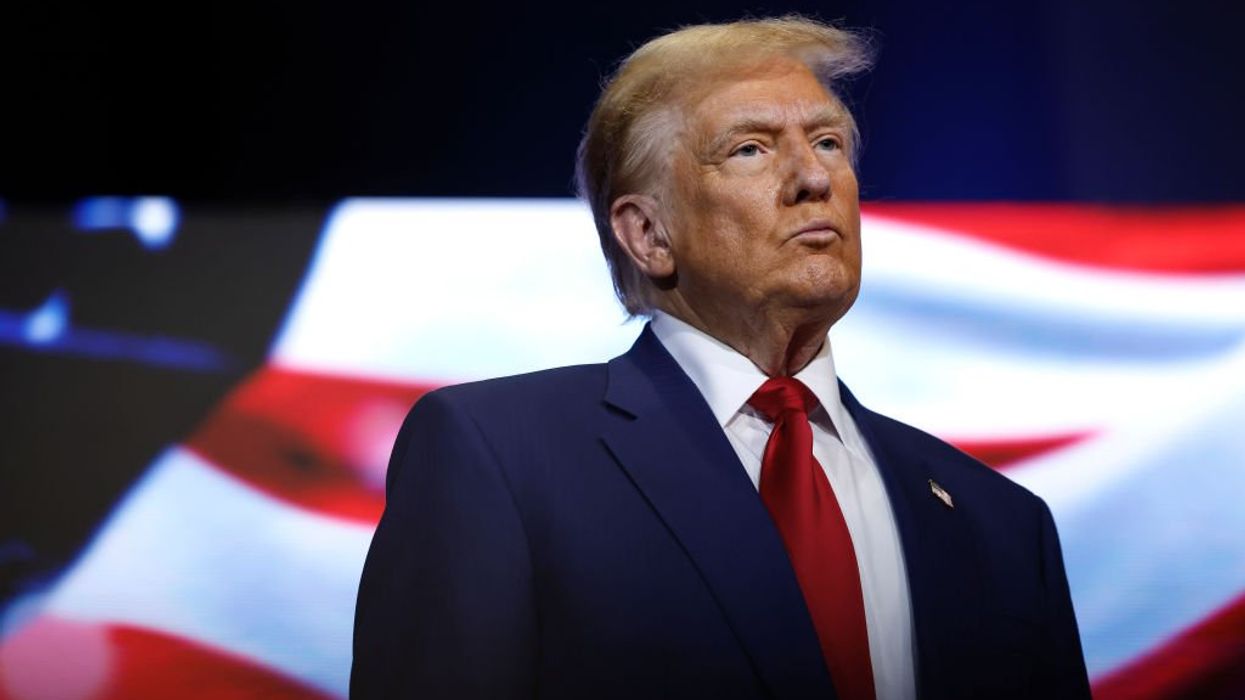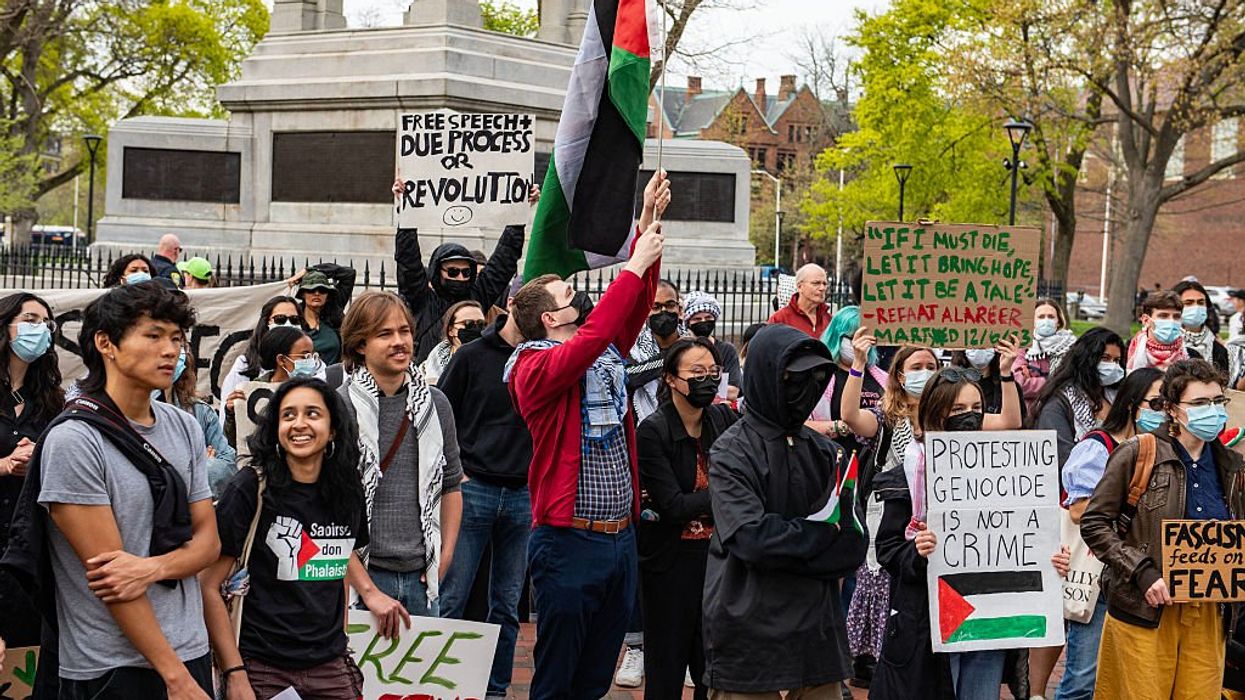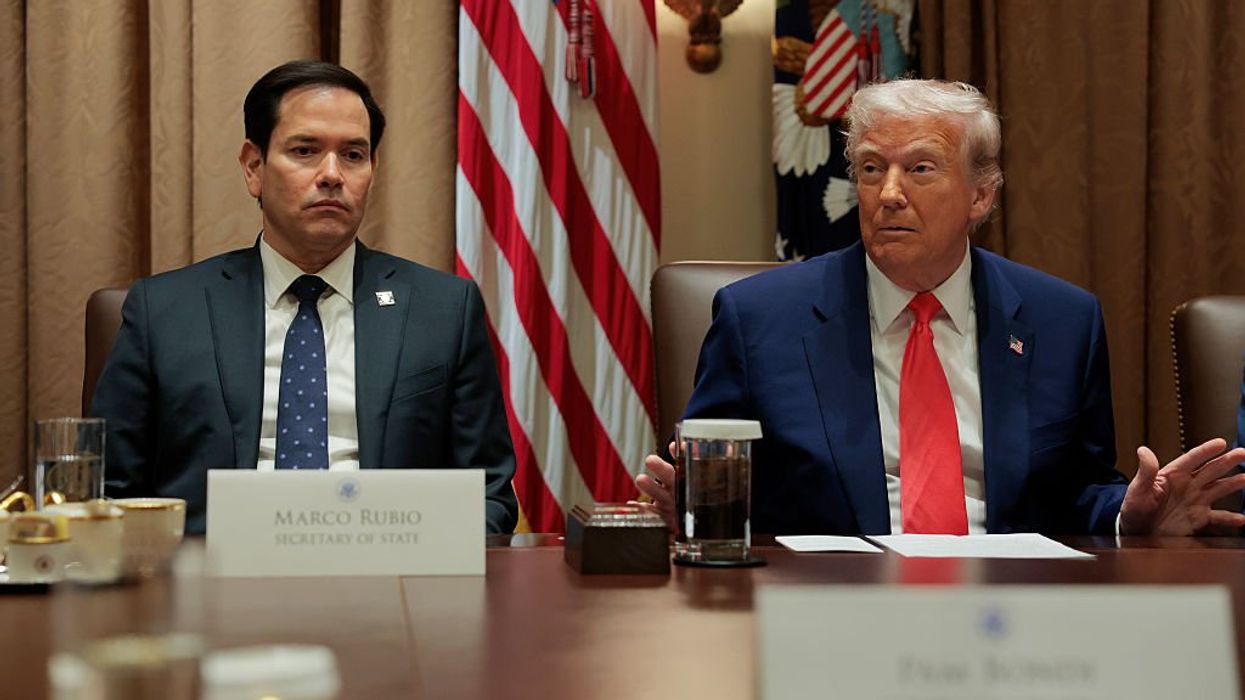
Photo by Anna Moneymaker/Getty Images

Trump administration reportedly weighs stricter checks on foreign students.
President Donald Trump's administration reportedly has plans to bolster national security by requiring social media vetting for foreign student visa applicants.
On Inauguration Day, Trump signed an executive order vowing to take "forceful and unprecedented steps to combat anti-Semitism," which included revoking foreign student visas and deporting Hamas sympathizers.
Trump warned that foreign students who participate in "pro-jihadist protests" at the nation's college campuses are "on notice."
"Come 2025, we will find you, and we will deport you," the president pledged.
RELATED: Trump escalates war against Harvard by shutting down visas for international students

The administration revoked roughly 4,000 student visas over the first 100 days of Trump's second term.
Last week, Department of Homeland Security Secretary Kristi Noem notified Harvard University that the agency had pulled the plug on the school's Student Exchange Visitor Program. The move is part of an ongoing feud between the Ivy League university and the Trump administration.
The administration's pause on student visas expanded on Tuesday, according to Politico.
A report from the outlet, citing a Tuesday cable signed by Secretary of State Marco Rubio, claimed that the Trump administration ordered U.S. embassies and consulates to halt scheduling new student visa interviews.
The cable read, according to Politico, "Effective immediately, in preparation for an expansion of required social media screening and vetting, consular sections should not add any additional student or exchange visitor (F, M, and J) visa appointment capacity until further guidance is issued septel, which we anticipate in the coming days."
The outlet noted that "septel" is shorthand for "separate telegram," indicating that the department will issue another communication with further details.
The administration has previously imposed some social media vetting. However, the cable reviewed by Politico indicates that the administration has plans to expand the program.
Simon Hankinson, a senior research fellow with the Heritage Foundation's Border Security and Immigration Center, explained how the visa vetting process has evolved over the decades to adapt to "a riskier world."
"When I did my first student visa interviews in India in 2000, we used a two-page paper form which contained very little personal information. We checked the names against a database, but it was not anything like as comprehensive as today's system," Hankinson told Blaze News.
He stated that while additional forms were added after the September 11, 2001, terrorist attack, social media did not yet exist.
"People who post incendiary, criminal, violent, anti-American, anti-Semitic, or anti-capitalist content online might not make the best visitors or students, let alone future Americans," Hankinson told Blaze News. "Evaluating someone's social media profile could be done quickly using AI these days and seems a prudent step."
"When I see some of the posts by foreign nationals who are now here on student visas, or trying to become Americans, I wish a few of them had never received visas," he continued. "No country can be forced to admit people who hate that country and its values and people, including the USA. Visas are a privilege, not a right."
RELATED: NYPD detains 80 'pro-Hamas thugs' accused of Columbia library takeover as Rubio targets visas

Rubio hinted in March that the administration aimed to crack down on potential safety and security threats.
"If you apply for a visa to enter the United States and be a student, and you tell us that the reason why you're coming to the United States is not just because you want to write op-eds, but because you want to participate in movements that are involved in doing things like vandalizing universities, harassing students, taking over buildings, creating a ruckus, we're not going to give you a visa," he stated. "We gave you a visa to come and study and get a degree, not to become a social activist that tears up our university campuses."
A State Department spokesperson told Blaze News, "The Department does not comment on internal communications."
"The Trump administration is focused on protecting our nation and our citizens by upholding the highest standards of national security and public safety through our visa process," the spokesperson said.
The spokesperson noted that the department has required visa applicants to provide their social media information on application forms since 2019.
"The Department's scheduling of nonimmigrant visa interview appointments is dynamic. An embassy or consulate's capacity reflects the time required for consular officers to adjudicate the cases before them in full compliance with U.S. law, including to ensure applicants do not pose a security or safety risk to the United States," the spokesperson added.
Editor's note: This article has been updated after publication to include a statement from the U.S. State Department.
Like Blaze News? Bypass the censors, sign up for our newsletters, and get stories like this direct to your inbox. Sign up here!